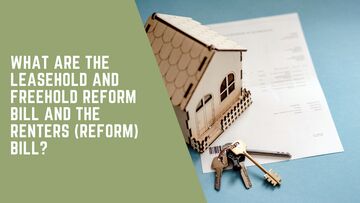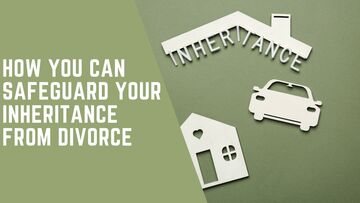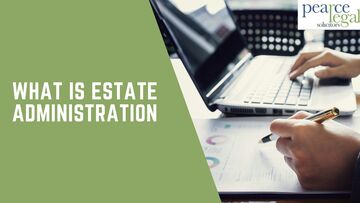What are civil partnerships?
News| 08.02.2021
Since December 2019, both opposite and same-sex couples in the UK can choose to enter a civil partnership or to have a marriage. Registering a civil relationship gives your union legal recognition and you also get legal rights and responsibilities just like in marriage.
The civil relationship can only be terminated if one partner dies or if you apply to the court to have it terminated legally. However, you are not allowed to apply to the court to end the partnership if you haven’t been together for at least a year. Pearce Legal can help you to understand your rights and responsibilities at every stage in your civil partnership, from planning to dissolution. We will be delighted to discuss your legal matters and give you a no-obligation quote if you would like to contact us.

What is a civil partnership?
A civil partnership is a legal union that can be entered into by two people who aren’t related, the partnership has the same responsibilities as in marriage but the difference is that a civil partnership is entered into by signing a civil partnership document while marriage is entered by vows.
Civil partnerships came into existence in 2005, their purpose was to provide legal recognition and protection for same-sex couples, the law also allowed same-sex couples to have a marriage. However, only same-sex couples were allowed to have either a civil partnership or a marriage while opposite-sex couples were restricted to marriage, but the law changed in 2019, opposite-sex couples are now also allowed to have a civil union.
Pre-registration agreements
Registering a civil partnership will give your relationship legal recognition, it will also give you legal rights and responsibilities in the relationship. You can choose to draw a pre-registration agreement that states your rights and obligations towards each other and what will happen if you decide the end the partnership.
When registering a civil partnership, you and your partner are required to sign a civil partnership document in front of the registrar and two witnesses. However, you can only sign a civil partnership document if you and your partner are both 16 years of age or over, if you have lived in the same area in the UK for at least seven days, if neither of you is already married or in another civil relationship, and if you’re not blood relatives.
If you’re 16 or 17 years old, you will need your parents or legal guardian’s approval to go on with the civil partnership. If they do not approve of it or perhaps you don’t know where they are, you can apply to a court for permission to register your civil partnership.
What are civil partnerships pros and cons?
Pros
There are many pros of having a civil partnership in the UK, these include:
1. The partners can jointly adopt a child
2. Civil partners who have separate bank accounts will not have access to the other partner’s account
3. when you’re in a civil partnership, you can create joint bank accounts together
4. If you or your partner dies, all the money goes to the living partner’s account
Cons
1. If one partner dies, the living partner will only inherit the properties if it is left in their name.
2. Civil partners do not have the same legal rights as married couples, and in some countries, civil partnerships are not allowed.
3. In case of death, the property is not automatically transferred from one partner to another
What are the advantages of a civil partnership?
There are several advantages of entering a civil partnership and below we have listed the main ones:
1. Marriage allowance: Despite the name, when you enter into a civil partnership, you get marriage allowance, and you claim it if either civil partner was born on the 6th of April 1935, if one civil partner pays tax at a rate not higher than the UK basic rate and if one civil partner does not use all their personal allowance. The purpose of this allowance is that the civil partner with the lower taxable income should give up 10% of their personal allowance and then the recipient partner receives a tax liability hence reducing the amount of tax they pay. However, the recipient partner will not have their own personal allowance increased because of this claim.
2. The married couple’s allowance: Despite the name, this allowance is also available for civil partners and it can only be claimed if one civil partner was born before the 6th of April 1935. This allowance gives the person who claims it a reduction against their tax bill by 10%. As of 2021, the maximum allowance is £8, 915 reducing to £3, 450 depending on your income.
3. Transfer of the blind person’s allowance: This allowance is available to civil partners or married couples who have been registered blind or have a sight that is extremely bad to the extent that it stops them from performing any work requiring eyesight. You must as well live in Scotland or Northern Ireland to claim it. The allowance works as an extra amount added to your personal allowance hence increasing your income before paying income tax.
4. Transfer of assets with no capital gains or inheritance tax: When you are in a civil partnership, you’re able to transfer assets to your civil partner without triggering a capital gains tax or inheritance tax liability.
What are the differences between a marriage and a civil partnership?
Civil partnerships are formed by signing a civil partnership document and ended by dissolution while marriage is formed by vows and ended by divorce.
Is a civil partnership the same as having a ’common law spouse’?
No, it is not the same. Civil partnerships give more protection while common-law spouse doesn’t.
How to register a civil partnership?
You can register your civil partnership in any registered office or venue that has been legally approved to register civil partnerships. There you will either be presented with pre-registration agreements which states all the obligations you’ll have as a couple and other information. There are two steps needed when registering – to give notice of your intensity to register and to actually register the partnership.
Giving notice
When registering the civil partnership, you and your partner are required to notify you of your intention to register the partnership at the local register where you live. You must do this in person so that the register can ask further questions about the partnership.
Registration
You can register your civil partnership at the registrar officer or any venue that is legally approved to register civil partnerships.
Adoption
Civil partners living together are allowed to adopt a child. Adopting your partner’s child legally is also allowed and does not involve an agency as long as the applicant has been living with the child for six months and over.
Adopting from overseas
Adoption laws are different; some countries do not allow same-sex couples to adopt children even when in a civil partnership. If you’re thinking of adopting outside the UK, then seek someone who will advise you on what to do regarding overseas adoption.
Banking
Banking and living together
When in a civil partnership and living together, you can have separate bank accounts and neither of you can have access to each other’s money in the accounts. If one partner dies, the balance in the account is still theirs and cannot be used until the estate is settled. If you decide to have a joint account, then you both have access to the money and if one partner dies, all the money in the joint account becomes of the other alive partner.
Banking and civil partnerships
If you and your partner have separate bank accounts and one partner dies, the bank will allow the living partner to take all the money in the bank, they will only require proof of your relationship and a death certificate of the deceased partner.
Death and Inheritance
inheritance and living together
If you’re in a civil partnership and one partner dies without leaving a will, there are rules on how their property will be distributed. The living partner does not have power over the property unless if you bought and owned it together. If there’s a will, then the living partner can inherit the property according to the will and you are required to pay inheritance tax on the property if it is valued at over a certain amount.
inheritance and civil partnerships
If you or your partner dies without leaving a will, the other partner is allowed to inherit some or all of the property. If the partner dies leaving a will, you will inherit the property according to the will. If all the property is left to you by the deceased partner, then you will not pay inheritance tax.
Inheritance and children
If a partner dies in a civil, they can leave a will of their possessions to anyone including their partner’s children. If there’s no will, children can inherit from their birth parents. If the child was adopted, they can inherit from their adoptive parents and adoptive parents’ extended families. When there’s no will, an adopted child can only inherit from their birth parent if the birth parent dies before the child is adopted.
Debts
If you have debts or other financial responsibilities, they do not become the responsibility of your partner when you get into a civil partnership. If you have debts together, then you are both responsible.
Domestic violence
When living together or in a civil partnership and your partner starts being violent to you and your children, you can ask for protection from the court. But if you’re not in a civil partnership, there’s little help the court may give you. If a man rapes his partner, he can be charged with sexual assault. A woman cannot rape another woman but can be charged with other offences.
Ending a relationship
If you’re living together and then decide to end the relation, you can do so without involving the court. But the court will still have to decide who will take the children from the relationship. If you’re in a civil relationship and decide to end it, you can either involve the court or do it informally.
Children at the end of a relationship
When a civil relationship ends in a same-sex civil partnership, you will both have parental responsibilities for the child. If you have disagreements on who should take care of the child, you may seek help from your local family meditation service.

Support
Financial support and living together
If you and your partner decide to end a relationship that is not in a civil partnership, then you both do not have a legal responsibility to support each other. But you’re both legally responsible for supporting your birth or adoptive child.
Financial support and civil partnerships
When your civil partnership has ended, you and your partner still have a legal responsibility to support one another financially.
Housing
If you live together in rented accommodation
If you and your partner live in a rented house that is only under one name, if the partner who signed the tenancy agreement asks you to leave, then you have no right to stay. But in some circumstances, you can ask the court to help you stay in the house or transfer the tenancy into your name.
Civil partners living in rented accommodation
If you and your partner are in a civil union, then you both have equal rights to stay in the house regardless of whose name is on the tenancy agreement.
Owner occupiers who live together
You may decide to own your home jointly or it can be owned by one partner. However, if your partner is the sole owner and asks you to leave the house then you have to right to stay. But if you have children together, the court might help transfer the property into your name.
Owner occupiers who are civil partners
When you are in a civil partnership, you both have equal rights of the house and it doesn’t matter who bought it. This is known as home rights.
Medical consent and next of kin
When you are living together
When living together, no one has the rights to give consent to medical treatment for the other partner. Doctors will discuss such important matters with the patient’s family.
Civil partners
When in a civil partnership, you also do not have the right to give content to medical treatment for your partner, unless your partner is unconscious and cannot make their own decision. You are the next of kin if you are in a civil relationship, so the doctors may turn to you on what to do.
What is the cost of registering a civil partnership?
The cost will depend on where you stay and where you wish to register in the United Kingdom. Venues will as well charge differently in order to host your civil partnership ceremony, therefore it is your duty to do some research on the perfect place that will be affordable for you.
Once you sign the civil partnership document, you will then receive a certificate that states your partnership. Couples are allowed to register at any registered office or venue that has been approved to register civil partnerships. Any venue that accommodates marriages can as well accommodate civil partnership marriages. However, religious venues are not forced to accommodate civil partnership couples for their ceremony.
Special rules for housebound people
A housebound person is a person who should not be moved because of disability or illness for at last three months as per the doctor’s directions, and housebound individuals have special rules when registering a civil partnership. i.e., the couple is supposed to register at the place where the other partner is housebound. When a housebound person is registering a civil partnership, all the procedures are exactly the same as the usual procedure but a doctor’s statement must be presented (it should be made no more than 14 days before you give notice and must be on a form provided by the registered office), and you will have three months to register the partnership instead twelve months.
Special rules for people who are seriously ill
When you or your partner is seriously ill and not expected to recover, there are special rules when registering the partnership. The process is shortened, meaning you will not have to wait for the usual 28 days to give notice and register the partnership. You will also need to provide evidence that one of you is seriously ill and not expected to recover, and you will also state your intentions of registering the partnership.
Special rules if one of you has acquired a different gender
If you or your partner wants to change their legal gender, then a gender recognition certificate must be presented when registering the civil partnership.
Converting a civil partnership into a marriage
It is very much possible to convert a civil partnership into a marriage, all that’s needed is for you to go to your registrar and sign the conversion documentation. Signing the conversion document that permits the couple to change their civil partnership into a marriage takes a few hours, the document also allows the couple to have a religious wedding ceremony if they want to.
When the document has been signed, the couple can have a religious wedding ceremony and they will be presented with a valid UK marriage certificate that states the validity from the date on which the civil partnership was formed. The couple is then able to receive all the benefits of a marriage in the UK and other countries.
There are basically two ways to convert a civil partnership into a marriage – A simple administrative procedure known as “Standard Conversion” or a two-stage process whereby the conversion is followed by a wedding ceremony.
The standard conversion process
With this process, you go to the registrar office and give the evidence of your name and date of birth, you also give evidence of your address and give your original civil partnership certificate. After you have provided the registrar with all the needed information, a legal declaration will be drawn up for you and your partner to sign. The document states that you agree to convert your civil partnership to marriage and that you’re happy to be lawfully identified as husband and wife.
A conversion followed by a ceremony
This conversation is in two stages – Firstly, you go to the registrar and convert the civil partnership into a marriage and then you go to a religious building where a wedding ceremony will take place.
Procedures for certain groups
If you are a housebound, detained or seriously ill person, the procedures of converting a civil partnership into a marriage are different from the ones stated. You need to contact the registrar to find out more about the procedures.
Fees
When converting your civil partnership into a marriage, you’ll be charged £45. There are also additional fees to pay for additional ceremonies.
What is a civil partnership for straight couples?
At first, only same-sex couples were allowed to have a civil partnership, but today opposite-sex couples can also register as a civil partnership. As a straight couple, registering a civil partnership will give your relationship legal recognition just like in marriage and it will also give you added legal rights and responsibilities. The partnership can only be ended when one partner dies or when you apply to the court to terminate the partnership legally. However, you cannot apply to end the relationship unless it has lasted for at least a year.
Will civil partnership affect my state pension?
If you are in a civil partnership, then you can claim a state retirement pension based on your partner’s national insurance contributions. If you decide to terminate the relationship through court, then you are entitled to a share of your ex-partner’s pension.
What rights do civil partnerships have
The rights in civil partnerships are similar to those in marriage. There is financial provision upon separation and rule in terms of inheritance and available tax entitlements.
Expert advice for you Book a free consultation
The team at Pearcelegal will be delighted to discuss your legal matters and give you a no-obligation quote.



